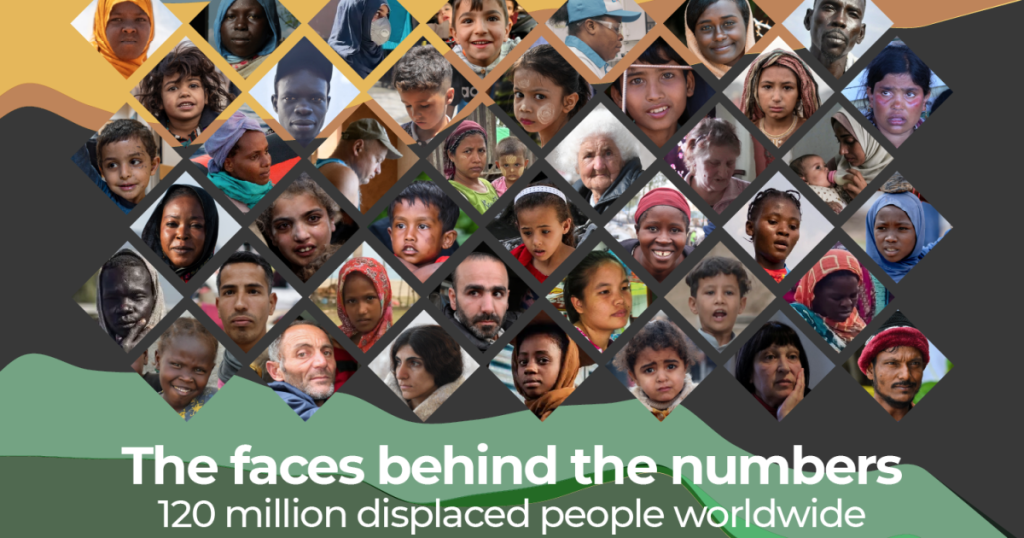One out of every 69 people on Earth is currently displaced, totaling about 120 million individuals, or 1.5 percent of the global population. This staggering statistic is accompanied by countless personal stories of families torn apart, livelihoods lost, and communities destroyed. Sixty-eight million people are internally displaced within their own countries, while the remaining individuals are refugees in need of protection or seeking asylum, according to the UNHCR.
To bring attention to the plight of refugees worldwide, the United Nations has designated June 20 as World Refugee Day. If all forcibly displaced individuals were to form a single country, it would rank as the 13th most populous nation in the world, just behind Japan. Shockingly, half of these displaced people are children, further highlighting the immense impact of this global crisis.
The history of refugee displacement dates back to the establishment of the Refugee Convention by the UN in 1951, initially to protect European refugees in the wake of World War II. By 1980, the number of refugees had surpassed 10 million, a figure that continued to rise due to conflicts in countries such as Afghanistan, Ethiopia, South Sudan, and Syria. The United States’ invasions of Afghanistan and Iraq, as well as ongoing civil wars, have contributed to the current refugee crisis, with numbers exceeding 30 million by the end of 2021.
More recent conflicts, such as the war in Ukraine, have led to a rapid increase in refugee numbers, with 5.7 million Ukrainians fleeing their country in less than a year. Meanwhile, ongoing conflicts in countries like Sudan have further exacerbated the crisis, causing mass displacement and humanitarian emergencies. The situation in the Gaza Strip, where Israeli bombardments have forced millions of Palestinians to flee multiple times, highlights the urgent need for international support and aid.
As of 2024, the majority of refugees come from five countries: Afghanistan, Syria, Venezuela, Ukraine, and Palestine. These individuals are forced to flee their home countries due to persecution or a serious threat to their safety. The majority of refugees are hosted by neighboring countries, with Iran, Turkey, Colombia, Germany, and Pakistan hosting the largest refugee populations. Most refugees in Iran, Pakistan, and Turkey are Afghans and Syrians, while Germany hosts a diverse mix of refugees from various countries.
Despite efforts to address the refugee crisis, the number of displaced individuals continues to rise, with ongoing conflicts and new crises fueling the displacement of millions of people worldwide. The global community must work together to provide support, protection, and assistance to refugees, ensuring their safety and well-being as they seek to rebuild their lives in unfamiliar surroundings. World Refugee Day serves as a reminder of the resilience and courage of those forced to flee their homes, and the need for greater compassion and solidarity in addressing this pressing humanitarian issue.


